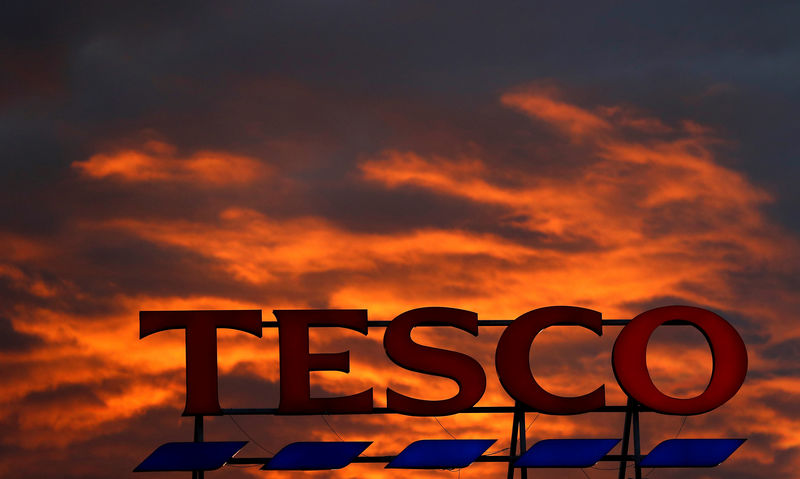Can anything shut down the Gold rally?
Investing.com -- The U.K. grocery market continues to show disciplined pricing behavior, with no indication of a price war, according to a recent Bernstein note on Tuesday.
Tesco (LON:TSCO) is reinforcing its market leadership through competitive pricing and steady share gains. Despite persistent cost-of-living pressures, consumers are still shopping around for value, Bernstein said.
Bernstein’s latest U.K. grocery pricing tracker shows Aldi remains the most affordable, followed by Lidl (+1%), Asda (+11%), Tesco (+12%), Sainsbury’s (+14%), Morrisons (+16%), Ocado (LON:OCDO) (+24%), and Waitrose (+32%).
The U.K. food retail sector is seeing rational pricing, where grocers continue to sensibly pass on pricing, albeit at a lower rate as food inflation has significantly reduced.
Bernstein expects this behavior to persist, even as cost pressures rise, leading to further food inflation throughout the year. This makes the U.K. food retail space a safe haven amidst market volatility.
Tesco continues to uphold its price discipline. The average basket price, including loyalty pricing, was 6% cheaper in 2025.
Tesco’s competitive pricing strategy is likely boosting its performance, as customers recognize the value of their offer. As a result, Tesco continues to gain market share, albeit at a slightly slower rate now. There is no indication of any competitor truly challenging Tesco on price.
Sainsbury’s grocery turnaround appears to be working. The pricing gap versus Tesco has been gradually narrowing, with Sainsbury’s sitting approximately 1 point ahead of Tesco in April 2025.
For the first quarter, Sainsbury’s appears to have had the highest price increases on both a 1-year and 2-year basis. This is largely driven by the Nectar Price campaign started in April 2023, which moved most of the promotions to the loyalty program.
Bernstein believes the Food First strategy is working, with improving consumer perception indicated by in-line price pass-through with Aldi and share gains in Kantar data.
Customers remain value-driven, facing pressure from higher costs of living, and likely have a higher propensity for promotions. Bernstein expects this behavior to persist, especially as food inflation ticks up and retailers pass on increased costs.
Tesco is likely to see the highest volume gains through their competitive pricing and strong private label range. Sainsbury’s is also in a good position as they improve their value offer, through growing strength in Nectar and innovations within their private label range.
However, non-food items remain a risk as non-discretionary spending is still under pressure. The proportion of respondents cutting back on non-essentials remains high, although this has stabilized around 60%, as some inflationary pressure has eased.
Bernstein believes non-food items still face cyclical challenges and will continue to struggle through the year amidst consumer caution. Sainsbury’s and Asda are the most exposed in this area.
